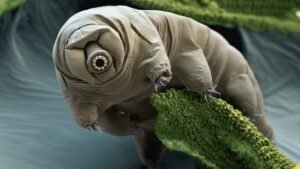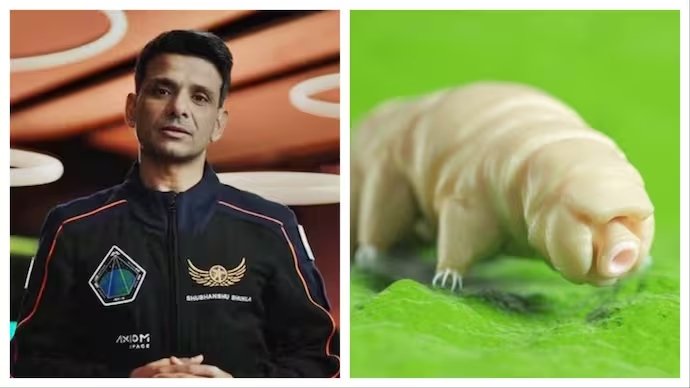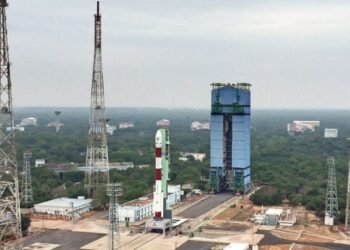In a groundbreaking study on the International Space Station (ISS), Group Captain Shubhanshu Shukla and his Axiom-4 teammates successfully researched tardigrades, tiny deep-sea extremophiles renowned for their toughness against extreme conditions.
The research uncovered findings about tardigrades’ existence in microgravity, the Indian Space Research Organisation (Isro) stated in a release on Saturday.
The study, focused on exploring the survival and reproductive behaviors of tardigrades in space, may have important implications for creating therapeutic applications on Earth, the statement noted.
ALSO READ: Explained: Why Indian Whiskies Are Dominating The Global Market?
Why the study on Tardigrades?
Tardigrades, known as “water bears,” are water-dwelling creatures that have lived for around 600 million years. They are tough beings, having endured all five significant mass extinction events.
Usually, they measure around 0.5 mm in length and possess four sets of legs. Typically present in the thin layer of water on mosses and lichens, they are also referred to as “moss piglets.”

Recognized for their toughness, tardigrades can endure harsh environments like temperatures varying from -272.95°C to 150°C. Grasping their survival strategies can assist in creating resilient crops, improved sunscreens, and preservation methods for human tissues and organs.
ALSO READ: Analysis! How to cope with ever-growing threat of AI?
Shubhanshu’s Axiom-4 Mission
Shubhanshu Shukla initiated a biomedical research endeavor on the International Space Station (ISS) during the Axiom-4 mission, marking him as the first Indian astronaut in the orbiting facility.
At the heart of Shukla’s mission is the Myogenesis Experiment, carried out within the Life Sciences Glovebox (LSG) on the ISS.
Alongside the tardigrade research, the Myogenesis study is examining how microgravity impacts human muscle restoration. The Gaganyatri team is documenting findings and executing scheduled actions, Isro stated.














